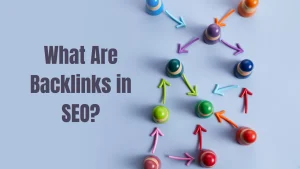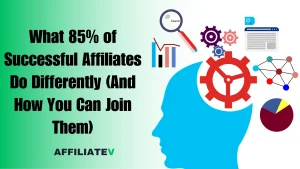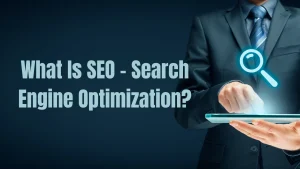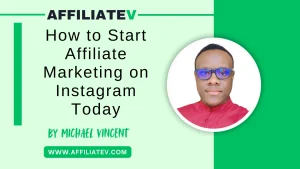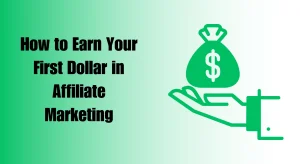Learn how to start Facebook affiliate marketing from scratch. Proven steps, tools, and tips to grow fast even without a website.
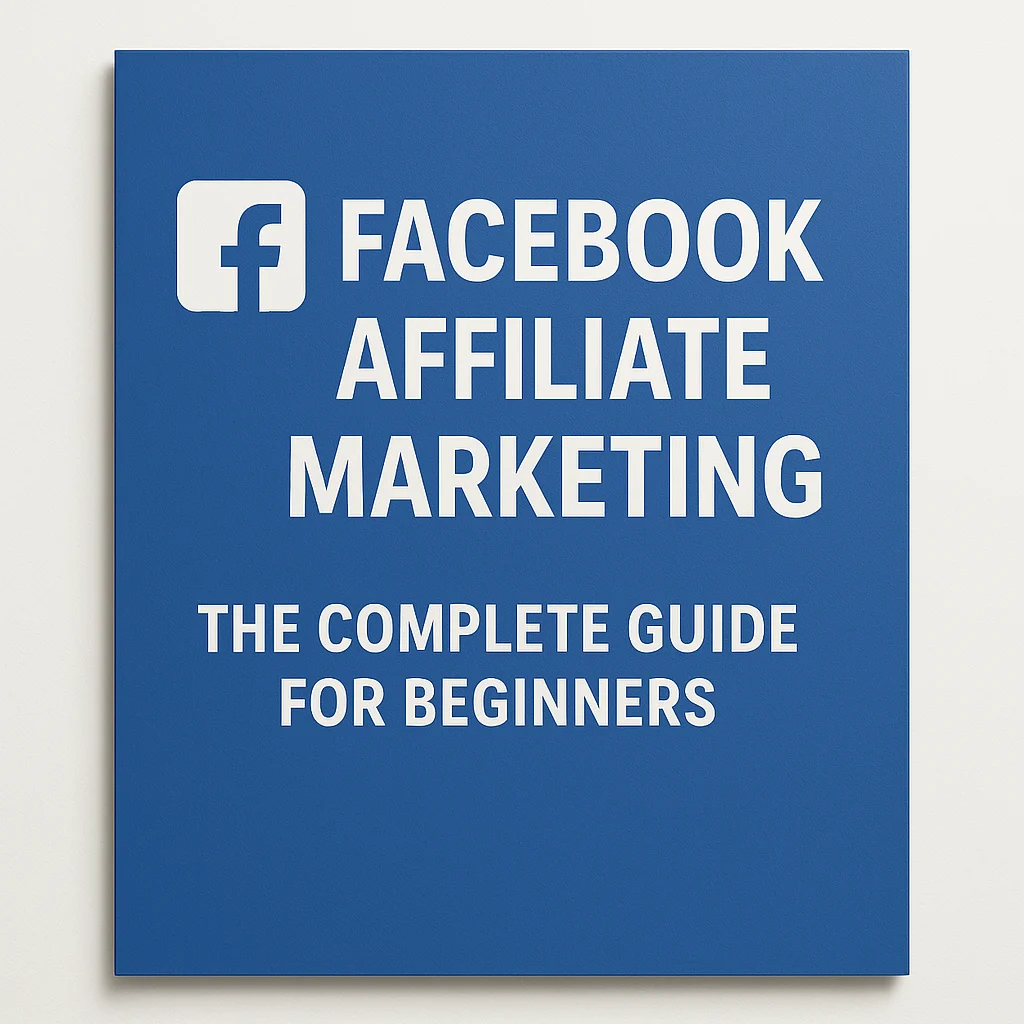
You’ve probably heard people say Facebook is dying. They say it’s all about TikTok now, or that Instagram gets all the attention. But here’s the truth. Facebook is far from done.
It’s still one of the most powerful platforms out there. Not just for connecting with people, but for making real money through affiliate marketing.
Take a second to consider. Over 2 billion people use Facebook every single day. That’s not just a number. That’s potential. That’s your audience. Your buyers. Your community.
What most beginners don’t realize is this: Facebook is underrated when it comes to affiliate marketing. People overlook it because it’s been around forever. But that’s exactly why it works.
The audience is warm. The groups are active. The trust is built-in. And the tools are all there waiting.
In this guide, I’ll show you how to tap into that. You’ll learn how affiliate marketing on Facebook actually works, how to do it without a website, and the right way to promote your links without getting flagged or ignored.
You’ll also get tips, tools, and a plan you can start using today.
This is not theory. It’s built from years of trial, failure, and wins. If you’ve ever felt stuck trying to figure out where to start with affiliate marketing or felt overwhelmed by flashy platforms, Facebook might just be the solid ground you need.
Let’s break it down. Step by step.
Key Takeaways
- Facebook still works for affiliate marketing—if you play by the rules.
- You don’t need a website to start, but you do need a clear strategy.
- Groups, pages, and personal profiles can all drive sales.
- Never drop raw affiliate links. Use a bridge like a value post or landing page.
- Focus on building trust—don’t pitch right away.
- Stick to niches that work well with conversation-style content.
- Use simple tools: Canva, Bitly, Facebook Pixel, and ChatGPT to create content.
- Spend 5–10 minutes a day engaging and posting—that’s enough to get started.
- Track what works. Then double down.
What Is Facebook Affiliate Marketing?
Facebook affiliate marketing is the process of promoting products or services on Facebook using special tracking links. When someone clicks your link and buys something, you earn a commission. That’s it.
You can do this without a website. You can promote directly in Facebook groups, on your personal profile, or even through Messenger. Just share helpful content, add your link, and let Facebook do the heavy lifting.
Here’s how it looks in action:

A simple 3-step flow:
- You share a value-based post on Facebook (profile, page, or group)
- Your reader clicks your affiliate link in the post or comments
- They buy from the merchant’s site, and you earn a commission
It’s simple, but it works best when you lead with value. Not links. Not sales talk. Just honest, useful content that fits what your audience cares about.
Can You Really Do Affiliate Marketing on Facebook?
Yes, you absolutely can. And people do it every day. Facebook does not ban affiliate marketing. What it bans is spam, clickbait, and misleading claims. If you follow the rules and focus on real value, you’re good.
Let’s clear up the doubts.
Some folks think affiliate links aren’t allowed on Facebook. Not true. Facebook’s official policy allows affiliate marketing, as long as your content is honest and doesn’t violate their community standards.

That means no false claims, no shady products, and no direct linking in ads without a bridge page. Organic posts with affiliate links? Allowed. Smart strategy? Even better.
Now, the numbers. Facebook may not be the trendiest platform, but the user base is still massive. According to Meta’s latest stats:
- Facebook had over 3 billion monthly active users in 2024
- Around 67 percent of adults in the US use Facebook regularly
- The average user spends 33 minutes a day on the platform
- Facebook Groups have over 1.8 billion monthly users
That’s not dead. That’s prime traffic.
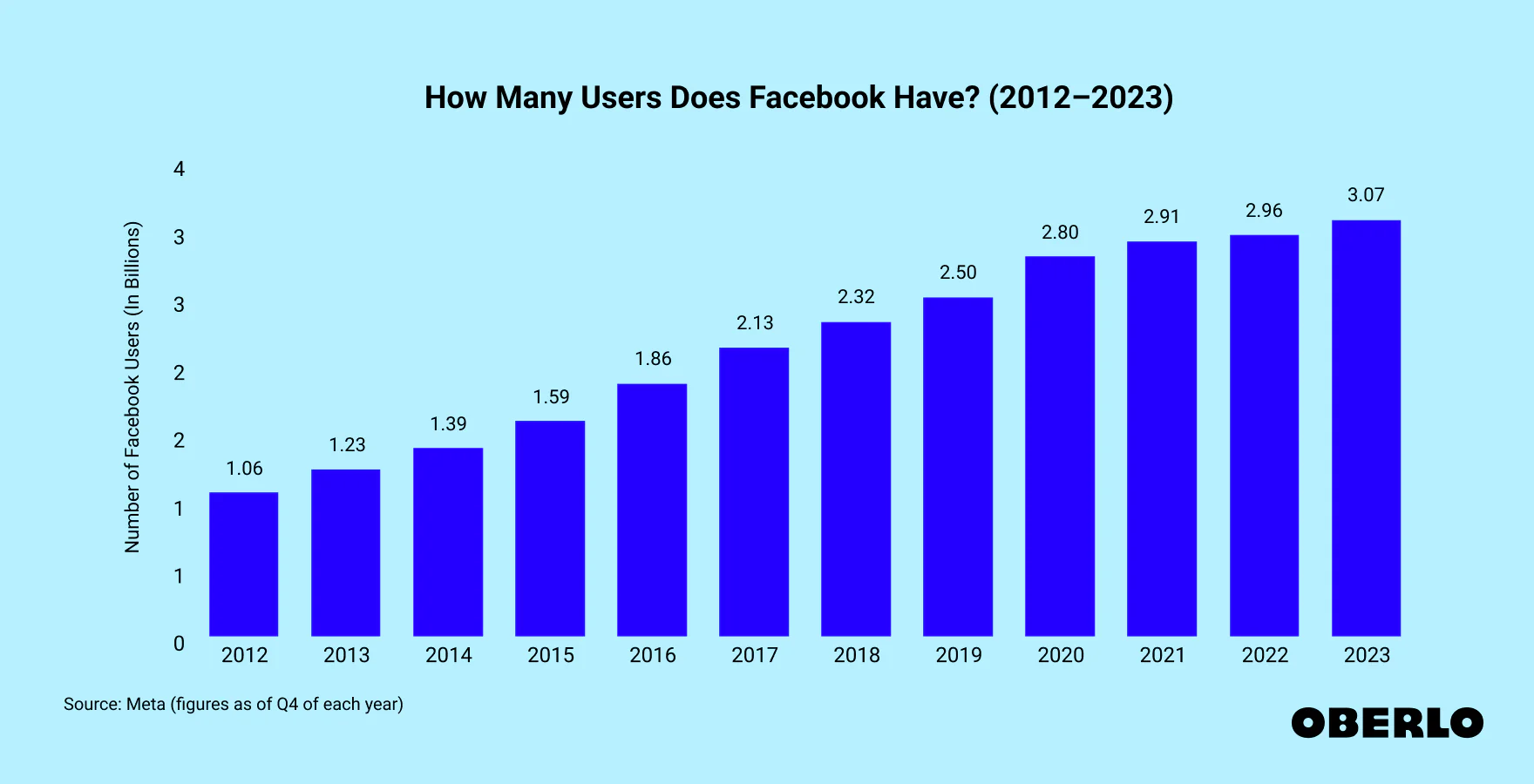
Paid vs. Organic
Organic: You can start for free. Use your personal profile, a niche Facebook page, or join groups where your audience hangs out. Share tips, tell stories, and drop your link when it fits. Organic takes time, but it builds trust.
Paid: Facebook Ads let you scale fast. But beginners need to go slow. Facebook often rejects direct affiliate links in ads. You’ll need a landing page or blog post in between. Use ads only when you’ve got a tested offer and some budget to work with.
Bottom line? Facebook is wide open for affiliate marketing. You just have to play it smart. Keep it real. Give value first. The rest follows.
Best Ways to Promote Affiliate Links on Facebook
Not all Facebook spaces work the same. Each gives you different ways to connect with your audience and share your links.
Here’s how to use them the right way.
A. Facebook Groups
Groups are one of the most effective places to promote affiliate products. People join groups to learn, connect, and get answers.
You’ve got two options:
- Join existing groups in your niche
- Create your own group from scratch
If you join groups, don’t just drop links. That gets ignored or deleted. Instead, answer questions, share tips, post helpful content, and only share a link if it fits naturally. The trust you build in comments often leads to clicks.
If you build your own group, make it focused. Keep the content niche-specific and value-driven. You control the rules and the tone. That gives you more freedom to post affiliate links in a way that actually helps people.
B. Facebook Page Strategy
Pages still work, especially when paired with consistent content. Create a page that speaks directly to your niche. Think of it like a content hub where you educate, inspire, and occasionally recommend.
Use posts that share helpful tips, product reviews, or mini-guides. Mix in personal stories or videos to keep it human.
Since Facebook sometimes hides links in regular posts, try this trick:
Put your affiliate links in the About section or your page bio. You can also direct people to your blog, YouTube channel, or a link-in-bio tool like Linktree.
C. Personal Profile
This one’s often overlooked, but it works. Your friends, family, and network can be your first audience. And Facebook’s algorithm favors posts from personal profiles.
Use a soft-sell approach here. No hard pitches. Tell stories, show behind-the-scenes stuff, and recommend products as part of your day-to-day content.
For example: “Just used this tool to fix my site speed. Can’t believe how easy it was.” Then drop the link in the comments or say, “Let me know if you want the link.”
You can also update your profile bio, cover photo, and featured story with affiliate-friendly callouts.
D. Facebook Ads (For When You’re Ready)

Once you’ve got some experience and a bit of budget, Facebook Ads can help you scale.
But don’t send traffic straight to affiliate links. Facebook doesn’t like that, and most networks don’t either. Use a landing page, lead magnet, or blog post in between.
Start small. Test headlines, creatives, and audiences. Then scale what works.
If you’re new, focus on organic first. Learn what your audience responds to. Paid traffic comes after.
The key to all of this? Value first. Always. Facebook punishes spam but rewards engagement. Give people a reason to care, and they’ll follow you. Then the clicks come naturally.
Step-by-Step: How to Start Facebook Affiliate Marketing
Here’s a simple starter plan that actually works. No overthinking. Just follow each step and stay consistent.
1. Choose a Niche
Pick something you actually care about. Not just what pays the most. The best niches sit at the intersection of your interest and market demand.
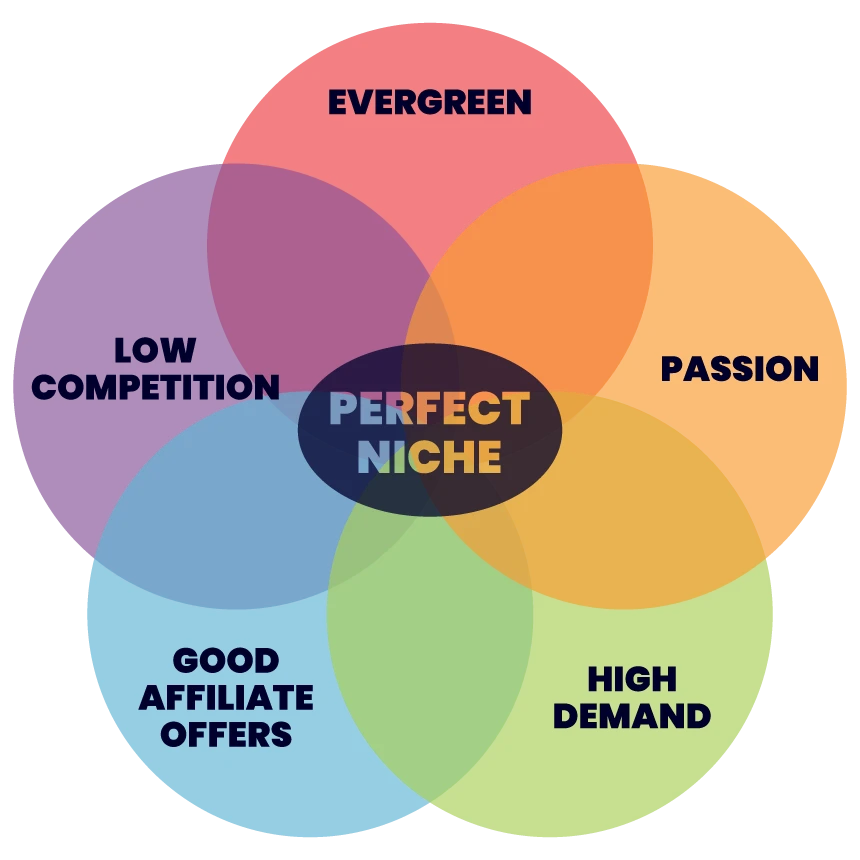
Examples:
- Fitness for busy moms
- Budget travel
- Pet care for new dog owners
- DIY home hacks
Stay focused. A clear niche makes your content stronger and your audience more loyal.
Recommended Reading: How to Choose the Best Niche for Your Affiliate Marketing Business
2. Find the Right Affiliate Programs
Once you know your niche, find products people already search for and trust. Join networks like:
- Amazon Associates
- ShareASale
- Impact
- ClickBank
- Digistore24
Look for programs with solid payouts, good reputation, and tools like custom links or banners.
Recommended Reading: How to Choose the Best Affiliate Programs for More Earnings and Long-Term Growth
3. Set Up a Facebook Profile, Page, or Group
You don’t need all three. Start with what fits your comfort level and audience.
- Personal profile: Best for soft-sell and storytelling
- Facebook page: Great for building a brand around your niche
- Facebook group: Ideal for building a community and deeper trust
Make sure your bio and cover photo clearly show what you do and how you help. Add a link to your page or lead magnet in the About section.
4. Plan Your Content (Value First, Links Second)
Affiliate marketing on Facebook is not about dumping links. It’s about creating conversations.
Post ideas:
- How-to tips
- Mistakes to avoid
- Personal wins or struggles
- Product reviews
- Story-driven posts that connect to your offer
Use affiliate links only after you’ve given value. Or drop them in the comments if that feels more natural.
5. Post Consistently and Engage
Consistency beats perfection. Set a simple schedule. Even 3 value posts a week can work if you stay active in comments and messages.
Respond to every comment. Ask questions in your posts. Show up like a human, not a marketer.
6. Track Clicks and Conversions
Use tools like:
- Bitly or Pretty Links for clean tracking
- Facebook Insights to watch post performance
- Affiliate dashboards to track clicks and sales
If a post brings clicks, double down on that style. If something flops, adjust.
Start small. Stay human. Let your content speak for you. Facebook rewards trust and real connection. Build those, and the commissions follow.
What to Avoid (So You Don’t Get Banned)
Facebook is strict, especially when it thinks you’re trying to game the system. Many beginners get banned not because affiliate marketing is wrong, but because they ignore the basics. Here’s what to stay far away from:
1. Posting Raw Affiliate Links
Never drop raw affiliate links in your posts, especially in groups or ads. They look spammy.
Facebook’s algorithm flags them fast.
Instead, use a link shortener like Pretty Links. Better yet, send people to a blog, lead magnet, or landing page that adds value first.
2. Spamming Groups or DMs
This is the fastest way to get booted. Don’t join a bunch of groups and start pasting the same message with your link. Admins will ban you. Facebook might suspend you too.
Same goes for inboxing people with unsolicited affiliate pitches. It kills trust and can trigger spam reports.
3. Using Misleading Copy
Don’t hype up false promises. Saying things like “Make $1,000 today” or “Lose 20 pounds in a week” is not just tacky, it breaks Facebook’s rules.
Stick to honest, experience-based writing. Talk like a real person who’s tried the product, not a sales robot.
4. Ignoring Facebook’s Rules
Read Facebook’s Community Standards and Advertising Policies. Even if you’re not running ads, your posts still need to follow the same basic rules.
Avoid:
- Fake scarcity
- Before-and-after images
- Aggressive health or money claims
- Anything that looks like a scam
Also, avoid engagement bait. Asking people to comment “YES” just to boost a post? Facebook lowers your reach when it spots that.
Play the long game. Stay clean, real, and focused on helping. That’s how you stay in Facebook’s good books and keep your content visible.
Tools That Help
You don’t need fancy software to get started. But a few tools can save time, track results, and make your posts stand out.
These are beginner-friendly and actually useful.
1. Link Shorteners
Bitly, Pretty Links
Long affiliate links look messy. They also trigger spam filters.
Use Bitly if you want quick, trackable links.
Use Pretty Links if you have a website and want branded, cleaner URLs like yoursite.com/go/toolname.
2. Tracking Tools
Facebook Pixel, Voluum
If you’re serious about growth, you need to track what works.
The Facebook Pixel tracks user behavior on your site.
Voluum gives you more detailed performance data across campaigns. It’s advanced, but helpful once you scale.
3. Canva
Use Canva to create scroll-stopping visuals for your posts. Templates, drag-and-drop design, no design skills needed.
Tip: Use consistent colors and fonts to build brand trust.
4. ChatGPT
Need help writing captions, headlines, or post ideas? ChatGPT can help you brainstorm fast without sounding generic.
You still need to edit and add your voice, but it’s great for getting unstuck.
Use these tools to work smarter, not harder. They won’t do the work for you, but they’ll make it easier to stay consistent and professional.
Beginner-Friendly Niches That Work on Facebook
Not every niche performs well on Facebook. Some are too boring. Some are too competitive. And some just don’t get clicks. But certain niches thrive here because they tap into daily life, emotions, and strong communities.
1. Health and wellness: This is a huge space. Think everyday advice, home workouts, stress relief, supplements, or healthy recipes. People on Facebook love practical tips that make them feel better without needing to hit the gym every day.
2. Parenting tips: Parents scroll Facebook while juggling life. Share relatable struggles, hacks, toy reviews, or learning tools. They’re always looking for simple ways to help their kids or make their own day smoother.
3. Personal finance: Budgeting, saving hacks, side hustles, or beginner investing tips. If you can explain money stuff in a simple way, Facebook is packed with folks who want that kind of help but don’t trust banks or flashy gurus.
4. Pets: People love their pets. If you post about training tricks, pet food, funny pet moments, or helpful gear, you’ll grab attention fast. This niche is emotional and highly shareable.
5. Hobby-focused niches: Anything hands-on works well. DIY crafts, fitness routines, home decor ideas, gaming tips, or cooking tutorials. Facebook’s algorithm favors content people like to comment on or share, and hobbies naturally pull that kind of engagement.
Pick a niche you can talk about for more than a week. If you’re bored with it, your audience will be too. Choose something that solves everyday problems and sparks real conversations. That’s how you build trust, brand, and traffic.
Recommended Reading: 10 Best Niches for Affiliate Marketing in 2025
Tips to Succeed Faster
Affiliate marketing on Facebook is simple, but not easy. If you want to grow faster and actually make money, not just get likes. These tips help you skip the noise and focus on what works.
1. Focus on trust over quick wins: People can smell desperation. If every post screams “Buy now,” they’ll scroll past you. Instead, give value. Teach something. Tell a story. Let people come to you when they’re ready. Trust brings long-term results.
2. Show your face: Use a real profile photo. Record quick videos. Talk like a human, not a marketer. People connect with people. The moment they see you as real, your posts start to matter.
3. Build a community, not just a feed: Anyone can post links. Few take time to start conversations. Ask questions. Reply to comments. Tag people. The more interaction, the better the reach—and the deeper the connection.
4. Share results, not just pitches: Don’t just say “This product is great.” Show what it did for you or someone else. Screenshots, before-and-after, short wins—even small ones—build curiosity and trust. Let people see the journey, not just the link.
These aren’t shortcuts. They’re the real work. But they separate the noise from the people who actually grow.
Conclusion
Facebook affiliate marketing isn’t dead. It’s just underused by people who want overnight success.
You don’t need fancy tools, big budgets, or a website to get started. What you do need is clarity, consistency, and a bit of patience. Pick a niche you actually care about. Use Facebook groups, your profile, or a page to share helpful content. Don’t drop raw links everywhere—earn trust first.
Start small. Post often. Watch what gets clicks. Adjust as you go.
And most of all, don’t overthink it. The ones who win are the ones who stay in the game.
Got a question? Drop it in the comments. I’ll help you figure it out.
Frequently Asked Questions
Can I do affiliate marketing on Facebook without a website?
Yes, you can do affiliate marketing on Facebook without a website. Many beginners start by promoting affiliate links directly through Facebook groups, personal profiles, or pages. Instead of linking straight to affiliate offers (which can get flagged), use landing pages or link shorteners like Bitly or Pretty Links. You can also share blog posts, videos, or helpful content that naturally leads to your affiliate link. Facebook values trust and engagement, so focus on giving value first. If you’re active in niche groups or build your own community, you can make affiliate sales without ever launching a full website. Just follow Facebook’s rules and avoid spammy behavior.
How do I promote affiliate links on Facebook?
To promote affiliate links on Facebook, use content that educates, entertains, or solves a problem. You can share posts on your profile, inside niche groups, or through a dedicated Facebook page. Tell a story, offer tips, or review a product. Don’t just drop links—explain why it matters. If you run Facebook ads, always send traffic to a landing page, not directly to an affiliate link. That keeps your account safe and gives you more control. Use tools like Canva to create eye-catching visuals and link shorteners to keep URLs clean. Remember, engagement drives reach. Make posts feel like conversations, not sales pitches.
Is Facebook affiliate marketing still effective in 2025?
Yes, Facebook affiliate marketing is still effective in 2025. With over 3 billion monthly users, Facebook remains one of the best platforms for organic reach and targeted promotion. The key is using the right strategy—niche content, trust-building posts, and smart use of groups or personal profiles. While newer platforms like TikTok grab headlines, Facebook still offers strong engagement, especially in communities built around shared interests. What works today is personal content, helpful advice, and links that feel natural—not forced. Many marketers quietly earn consistent income by building small but active Facebook audiences around specific affiliate offers.
What are the best affiliate programs to promote on Facebook?
The best affiliate programs for Facebook marketing depend on your niche. For health and wellness, look at ClickBank or Amazon Associates. For finance or software, consider programs like Bluehost, GetResponse, or ShareASale. Choose programs with clear commission terms and products people talk about on Facebook. Avoid promoting high-risk or scammy offers—they’ll get flagged fast. Look for trusted brands with helpful content you can repurpose. Join Facebook groups in your niche to see what products people recommend or ask about. That’s usually a sign the audience is warm and ready to buy.

